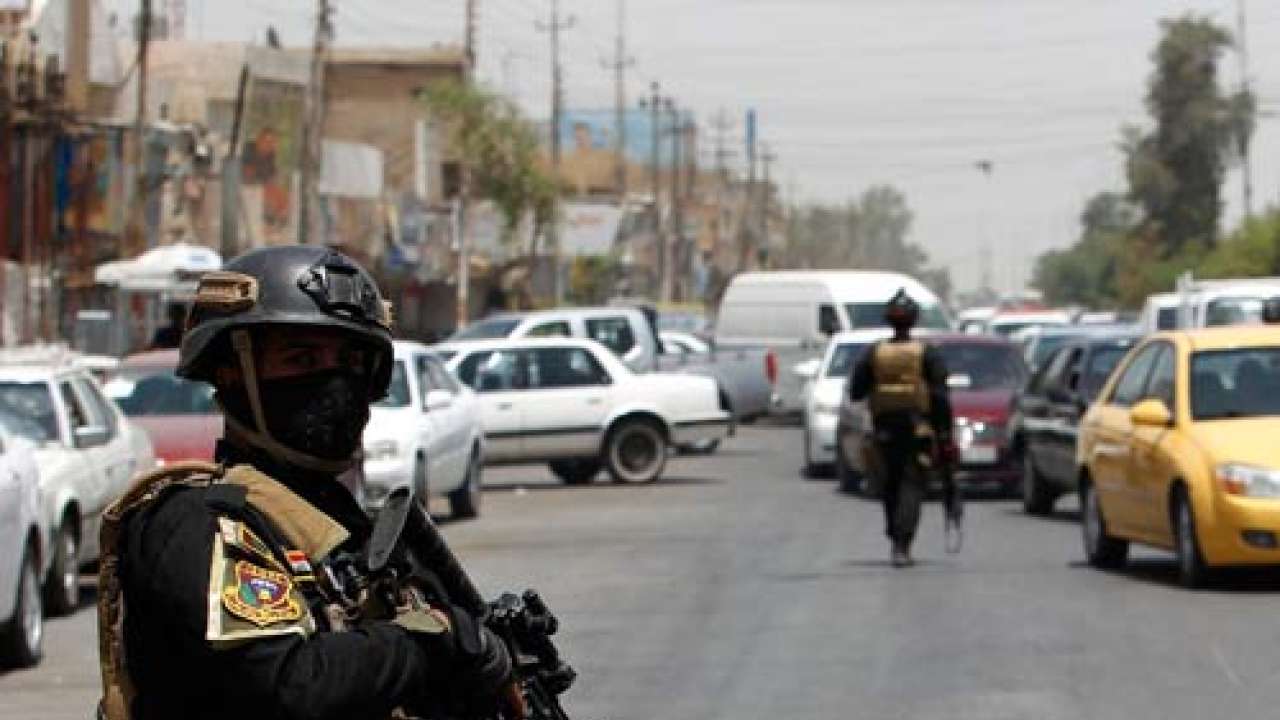
India’s Ministry of External Affairs (MEA) spokesperson, Syed Akbaruddin, confirmed at a press conference that 40 India construction workers had been kidnapped from the northern Iraqi city of Mosul. The workers, originating largely from northern India, were reportedly picked up as the ISIS overran the city, dislodging the Iraqi Army from the region.
Moving southwards from Mosul, around 40 Indian nurses have also found themselves on the frontline of Iraq’s raging civil war. However, unlike the construction workers, the nurses have been in contact with the NGO Red Crescent, which has relayed information that they are safe and in good spirits at their hospital.
The immediate priority for New Delhi is the safety of the 40 missing construction workers, and this as of now poses the first big challenge for Prime Minister Narendra Modi. Over the past few hours, it has been made clear that India’s diplomatic presence and reach in Baghdad is limited. With over 12,000 Indians known to be in Iraq, New Delhi is looking towards a situation where it may not be able to do all that much if any more kidnappings of its citizens take place amidst the possibility of the fighting arriving in Baghdad.
New Delhi has decided to send its former seasoned Iraq hand, Suresh Reddy, to Baghdad to provide assistance in dealing with the rapidly growing and changing situation in the country. In a situation like this, India is finding its diplomatic prowess weak and its lack of reach within a country to its citizens exposed. This highlights the long-running discussion of India’s tiny foreign services core compared to the country’s population and the number of its citizens working abroad. Committee recommendations over the overhaul of India’s foreign services have been asking for rapid expansion since the 1960s, however, progress even today remains nascent.
The kidnappings in Mosul can go either way as the situation stands at the moment. While the possibility of the workers being set free without any damages is not impossible, the situation will remain ambiguous till it is established exactly who was behind the act. Just because the ISIS is responsible for the fall of Mosul does not mean it is only them who could be behind these kidnappings.
While the ISIS poses the biggest challenge to Baghdad, they are receiving support from smaller factions in various Iraqi towns that they cross. While their own juggernaut arrives on the outskirts of Baghdad, in the north, the autonomous region of Kurdistan is taking this opportunity to strengthen its own stand in Iraqi politics. The Kurds are strengthening their own hold on towns like Kirkuk with some suggesting that the Kurds themselves are seeing this as an opportunity to convert their current ‘autonomous’ status into something permanent. However, for them, the rise of ISIS in their backyard is as much a problem as to anyone else in the region.
The existence of smaller factions, similar to the situation in Syria where the ISIS is already present as an emphatic force fighting the government of President Bashar al-Assad, makes hostage situations such as the one currently faced by India tricky.
In 2004, twelve workers from Nepal were abducted and later killed by their captors in Iraq. The small group responsible, Army of Ansar Al-Sunna, said they Nepalese hostages were abducted and killed because they “came from their country to fight the Muslims and to serve the Jews and the Christians." The captors made no demands to the government in Kathmandu or any other organisation.
The situation in Iraq has never been stable since the American withdrawal. Before exiting the country, the US signed no military agreements (similar to the Bilateral Security Agreement they are trying to sign with Afghanistan) with Prime Minister Noori al-Maliki, a man who was not Washington’s preferred choice of leader to begin with. According to a research conducted by Pew Research Centre earlier this year, 52% of people surveyed said US had largely failed in Iraq, while 39% said otherwise. This was calculated as a 19-point decline in perceived success since 2011.
Prime Minister al-Maliki in Baghdad is facing his own demons as he tries to consolidate his power in the country. He has been blamed for siding exclusively with the Shia population and ignoring the Sunnis of Iraq. In an interview to CNN’s Christiane Amanpour, Iraq’s deputy Prime Minister Saleh al-Mutlak has said that even he is being sidelined by al-Maliki due to him being of Sunni background. To add to the chaos further, neighbouring Iran, to which al-Maliki shares (very) close relations with, has said that it will send “volunteers” to protect Shia shrines in Iraq from the ISIS. It is no secret that Qassem Suleimani, leader of the powerful Iranian Quds Force, the elite overseas branch of Iran's Revolutionary Guard Corps, is a regular visitor to Baghdad and has been known to arrive in in the city often without al-Maliki’s knowledge.
For New Delhi, it remains to be seen how many of its citizens will actually require help. While no new reports of Indians stranded in Iraq have surfaced yet, the nurses in Tikrit are reportedly healthy and safe while some others are reportedly waiting and watching. The MEA has also asked people to not press panic buttons and realise that the crisis has not engulfed the entire country yet, and is localised till some extent. However, strategies should be in place in case of the worst.